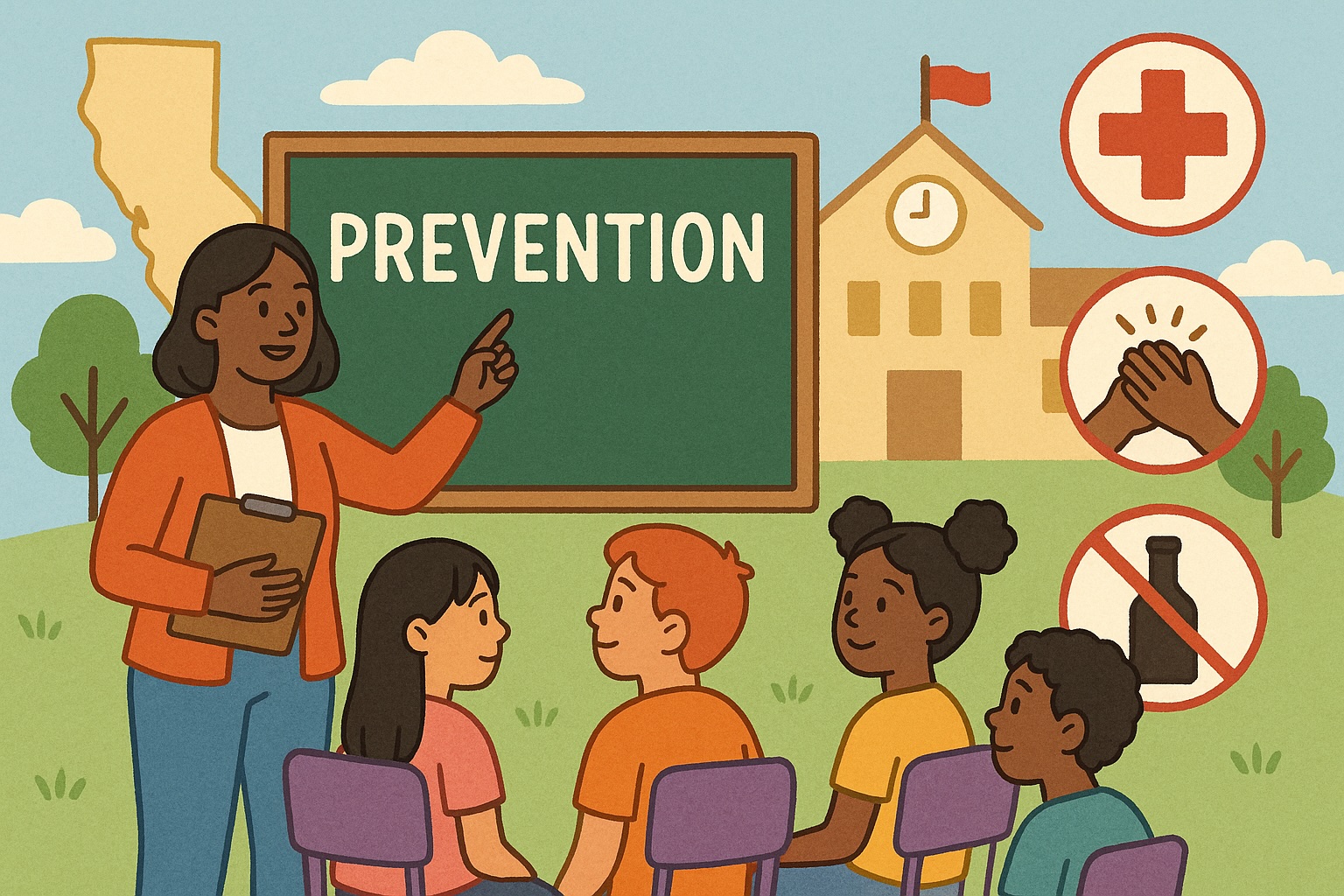Prevention Education in California Schools
California schools are expanding prevention education to teach consent, healthy relationships, and respect to stop domestic violence before it starts.

Prevention starts with education. Across California, schools are adopting domestic violence prevention programs that teach consent, healthy relationships, and conflict resolution. Advocates say these lessons are critical to breaking generational cycles of abuse.
What Students Learn
Consent Education: Understanding boundaries and respect.
Healthy Relationships: Communication, trust, and equality.
Warning Signs: Recognizing red flags of abusive behavior.
Bystander Intervention: Teaching students how to safely help peers.
Why It Matters
Students exposed to violence at home are more likely to repeat the cycle.
Early education builds lifelong respect and empathy.
Prevention reduces long-term reliance on shelters and crisis interventions.
Programs in Action
Coaching Boys Into Men implemented in California high schools.
Expect Respect adapted for middle school curricula.
Partnerships with local nonprofits bringing survivor speakers into classrooms.
Conclusion
California schools are proving that prevention starts early. By teaching youth about respect and healthy relationships, the state is planting seeds for a future with less violence.
FAQs
What is prevention education?
School-based programs teaching consent and healthy relationships.Why is it important in California?
It addresses abuse at the root level before it escalates.What age groups are targeted?
Middle and high school students.What programs exist?
Coaching Boys Into Men, Expect Respect, and local nonprofit initiatives.What impact does it have?
Long-term cultural change, reducing domestic violence rates.
